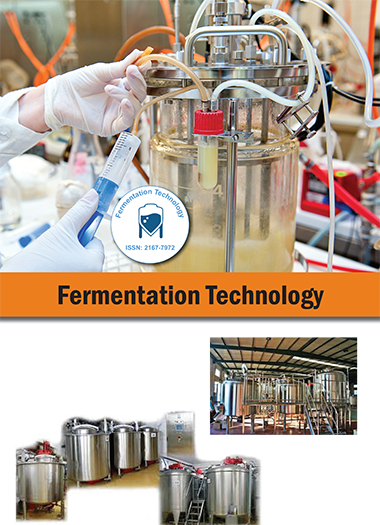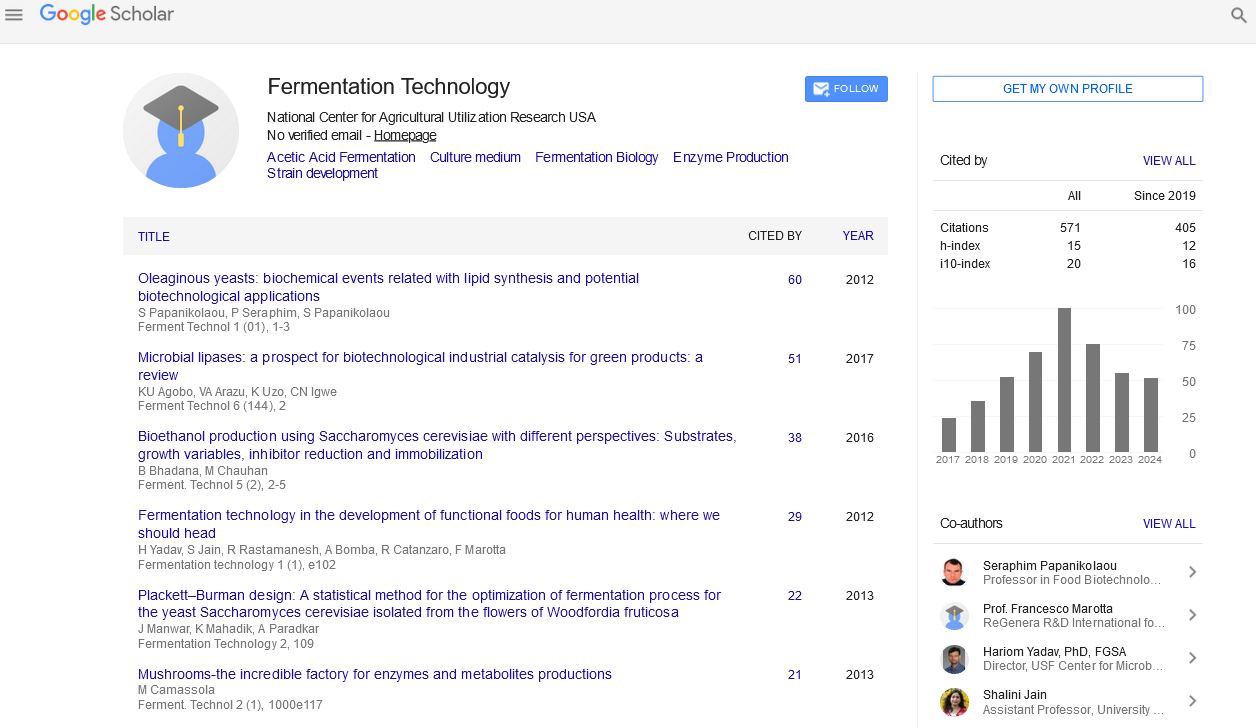Indexed In
- Open J Gate
- Genamics JournalSeek
- Access to Global Online Research in Agriculture (AGORA)
- RefSeek
- Hamdard University
- EBSCO A-Z
- OCLC- WorldCat
- Publons
Useful Links
Share This Page
Journal Flyer

Open Access Journals
- Agri and Aquaculture
- Biochemistry
- Bioinformatics & Systems Biology
- Business & Management
- Chemistry
- Clinical Sciences
- Engineering
- Food & Nutrition
- General Science
- Genetics & Molecular Biology
- Immunology & Microbiology
- Medical Sciences
- Neuroscience & Psychology
- Nursing & Health Care
- Pharmaceutical Sciences
Functional properties of Lactobacillus sp. strains for application in health improvement
World Congress on Beneficial Microbes: Food, Pharma, Aqua & Beverages Industry
August 25-27, 2015 Valencia, Spain
Marika Mikelsaar
University of Tartu, Estonia
Keynote: Ferment Technol
Abstract:
The gut microbiota provides host by chance with a large diversity of metabolically active species and strains that predict the response for different health conditions. Lactobacilli are characterized by wide gene richness for metabolism of carbohydrates, amino-acids and lipids. According to the FAO/WHO regulations (2002), the origin of the gut strain, its safety and colonizing abilities serve as the basic criteria for selecting suitable candidates for probiotics. However, little attention has been drawn to the functional properties of particular Lactobacillus sp. (LB) strains for regulation of blood and urine biomarkers. We have discovered some LB strains with high antagonistic activity against enteric pathogens (Salmonella enteritidis, Shigella sp., Helicobacter pylori, Clostridum difficile) based on the production of high amounts of SCFA, ethyl alcohol and antimicrobial peptides. In experimental animal models some LB strains caused the enlargement of Peyerâ??s patches, increased the number of lymphocytes and mono-and polymorpho nuclears with induction of inflammatory and anti-inflammatory cytokines in gut mucosa and organs. This serves as an important immune enhancing functional property of the special strain aimed for control of infection and correction of dysbiosis after antibiotic treatment. Further, in L. fermentum ME-3 (DSM 14241) the full glutathione cycle and antioxidative Mnâ??SOD, expressing antiatherogenic effects in volunteers was detected. Moreover, the strain was characterized by both alfa- and beta-galactosidases and bile acids hydrolases. This was associated with improvement of blood lipid profile in volunteers with border line high content of low-density-cholesterol. The peptides with inhibitory activity of angiotensine converting enzymes, polyamine spermidine and nitric oxide (NO) were produced in vitro by both L. plantarum DSM 13279 and DSM 13280 strains. In dairy food intervention and clinical trials these functional properties have been shown to reduce the risk of obesity and high blood pressure. Thus, further research on the functional properties of putative probiotic Lactobacillus sp. (LB) strains may help to clarify ways of regulating the blood and urine biomarkers for reducing the risk of metabolic and immune-mediated diseases.
Biography :
Marika Mikelsaar is the Tartu University Professor emeritus and medical biotechnology extraordinary Professor. Her main research interests are clinical microbiology, human microbiology health and disease, and the probiotic mechanisms of action and development. She garners public attention achievement is a patented probiotic lactic acid bacteria Lactobacillus fermentum ME-3 detection, which is used by Dr. Hellus dairy products in the series. 2007. She was awarded for the European Union, women inventors and Innovators Network (EUWIIN) Award and 2008. She is in the global women inventors and Innovators Award. She belongs to the Estonian Women Student Society.
Email: marika.mikelsaar@ut.ee

